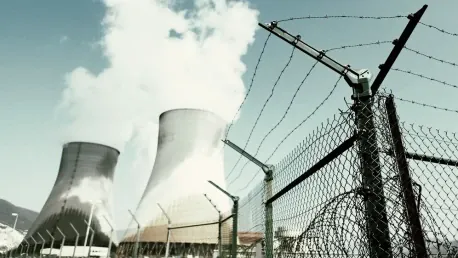Serbia is taking significant steps towards integrating nuclear energy into its energy strategy, marked by a recent collaboration with China in the nuclear sector. Serbia’s state-owned Nuclear Facilities of Serbia signed a memorandum of understanding with the China Institute of Atomic Energy (CIAE), further cementing this strategic partnership. The collaboration focuses on decommissioning a heavy-water research reactor, managing radioactive waste, ensuring radiation protection, and exchanging vital knowledge. This move not only represents a strategic part of the bilateral cooperation between Serbia and China but also aligns with Serbia’s broader efforts to diversify its energy sources and enhance energy security.
Strategic Partnerships and Policy Shifts
The partnership between Serbia’s Nuclear Facilities of Serbia and the China Institute of Atomic Energy highlights a significant turn in Serbia’s energy policy. After lifting the 1989 ban on nuclear power plant construction in 2021, Serbia has shown a renewed interest in incorporating nuclear energy into its energy infrastructure. This shift was largely driven by President Aleksandar Vučić, who has advocated for nuclear energy as a key element of the country’s energy strategy. The importance of this partnership is underscored by the fact that it brings together Serbia’s sole nuclear operator and China’s largest nuclear institute, ensuring that Serbia can tap into China’s extensive expertise and technical support in the nuclear arena.
Additionally, Serbia has forged several other international partnerships aiming to bolster its nuclear capabilities. Discussions with Russia’s Rosatom, a prominent player in the global nuclear sector, indicate a strategic collaboration in the making. Furthermore, in April of the current year, Serbia formalized its cooperation with France’s EDF (Électricité de France) through the signing of a memorandum. These alliances signify Serbia’s commitment to working with established nuclear entities worldwide to achieve a robust and reliable nuclear energy program.
Expanding International Collaborations
Serbia’s endeavors in nuclear energy are also reflected in its cooperation with other European countries. This is exemplified by the joint study conducted by EDF and Egis Industries, focused on the peaceful use of nuclear energy. The study represents an important milestone in Serbia’s journey towards developing a safe and sustainable nuclear energy program. Moreover, the discussions held between the Serbian Minister of Mining and Energy, Dubravka Đedović Handanović, and Slovenian Ambassador Damjan Bergant, emphasize Serbia’s intention to engage in prospective nuclear collaborations within the region.
Such regional collaborations are crucial as they offer opportunities for shared expertise, technical support, and coordinated efforts in nuclear development. Serbia’s engagement with Slovenia, in particular, is aimed at exploring mutual benefits and potential joint ventures in the nuclear sector. By leveraging Slovenia’s experience and technological advancements in nuclear energy, Serbia can further fortify its capabilities and ensure a well-rounded approach to its nuclear energy program.
Systematic Approach to Energy Diversification
Serbia is making notable strides in incorporating nuclear energy into its energy strategy through a recent partnership with China. The state-run Nuclear Facilities of Serbia signed a memorandum of understanding with the China Institute of Atomic Energy (CIAE), strengthening this strategic alliance. This collaboration aims to decommission a heavy-water research reactor, manage radioactive waste, ensure radiation protection, and facilitate the exchange of crucial knowledge. The partnership is a key aspect of the broader bilateral cooperation between Serbia and China. This effort aligns with Serbia’s goal to diversify its energy sources and enhance its energy security, positioning the country to better meet future energy demands. By focusing on nuclear energy, Serbia aims to secure a stable and safe energy supply, while also leveraging Chinese expertise in the field. This move represents a significant step in Serbia’s energy strategy, reflecting its commitment to both innovation and international cooperation.









